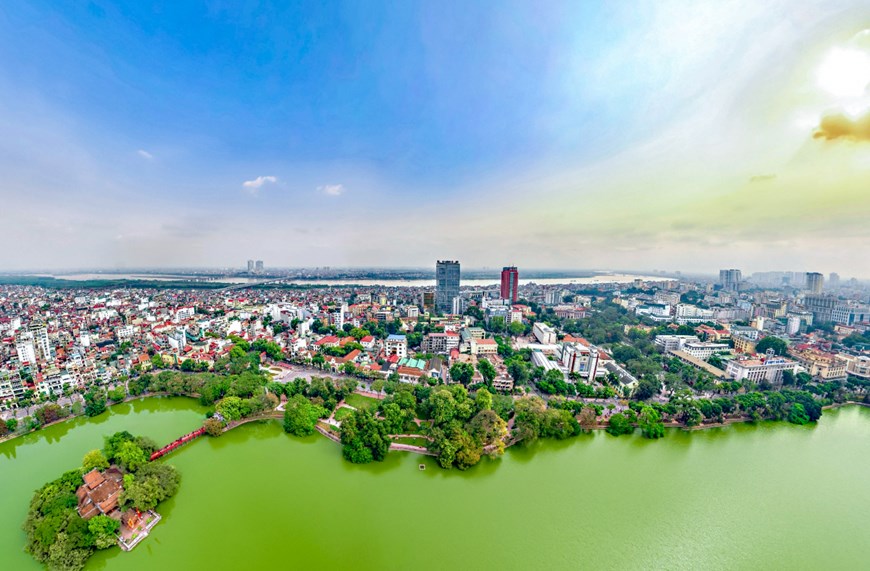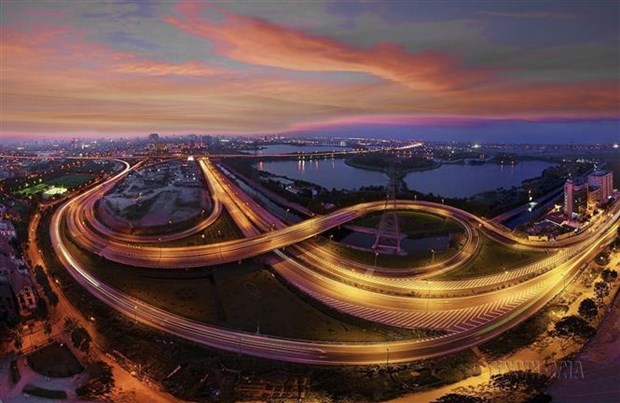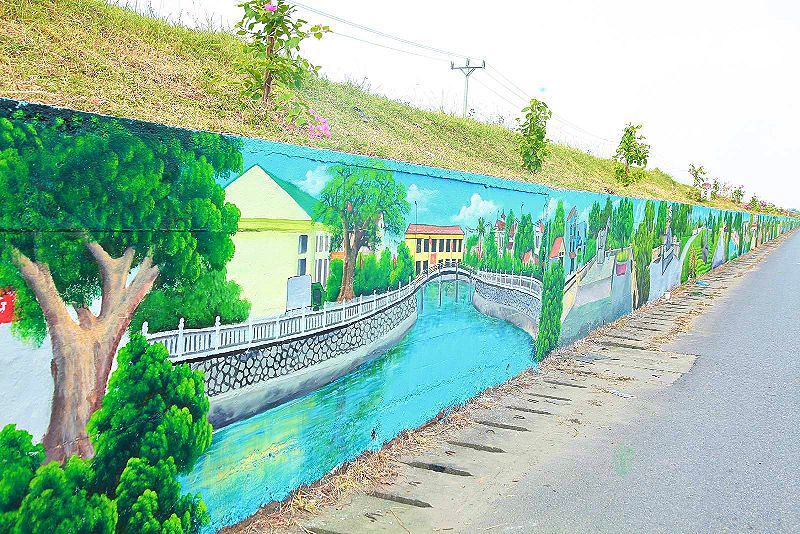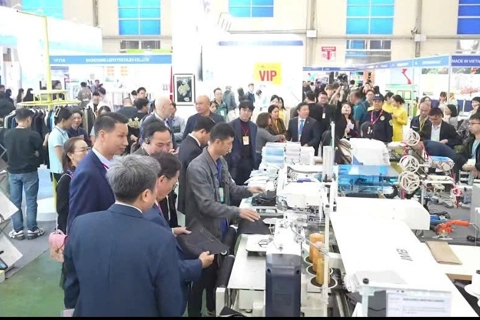Hanoi: Larger, more potential for cultural development
Over the past 15 years, the development of the tourism and cultural industries has contributed to accelerating the restructuring of the capital economy.
From a war-torn city, after several administrative reorganizations, Hanoi has become a modern and dynamic city and the largest political, socio-economic and cultural center of Vietnam, making significant contributions to the nation's development while preserving traditional historical and cultural identities.
After 15 years of administrative boundary adjustment under Resolution No. 15, Hanoi aims to make the cultural industry a key economic sector, driving the growth of other sectors by the end of this decade.
Huge potential
Hanoi has established ties with more than 100 capitals and cities worldwide. The capital's people-to-people foreign relations activities have helped strengthen exchanges and understanding between the capital's people and those from many cities and countries.
In 1999, Hanoi was among five cities from five continents awarded the title of "City for Peace" by UNESCO in recognition of its contributions to the struggle for peace and its development in line with the organization's standards on community equality, urban construction, living environment, promotion of culture and education, and care for younger generations.
| Hoan Kiem District from a bird's eye view. Photo: VNA |
Twenty years later, in 2019, Hanoi became an official member of UNESCO's Creative Cities Network.
According to Dang Huong Giang, Director of the Hanoi Department of Tourism, after 15 years of territorial reorganization, the capital's tourism industry is becoming a spearhead of Hanoi's economy, building its own brand based on the capital's advantages.
"Hanoi has been ranked among the top 10 fastest-growing tourist cities in the world and 15th in the global top 25 tourist destinations," Giang said.
In 2020 and 2021, Vietnam's tourism industry, including Hanoi, was severely affected by the Covid-19 pandemic, leading to a sharp decline in tourist arrivals. However, once the pandemic was under control, the city government worked to stimulate demand and restructure tourism products, focusing on the domestic market. The city government has recognized 10 more tourist attractions and built more products to bring a "new breeze" to tourism.
Compared to 15 years ago, Hanoi has now opened five pedestrian streets (one at Hoan Kiem Lake, one at Trinh Cong Street, one at Thien Quang Lake, one in Son Tay Town and one at Ngu Xa Street) and is considering opening two more in Gia Lam District and Ba Dinh District.
In the first six months of 2023, the total number of tourists to Hanoi reached 12.33 million, an increase of 42% over the same period in 2022.
| Today, Hanoi is a modern and dynamic city and one of the two major political, socio-economic and cultural centers of Vietnam. Photo: VNA |
Regarding the cultural industry, Dinh Tien Dung, Secretary of the Hanoi People's Committee, said that Hanoi is the first place in the country to issue a thematic resolution on the development of the cultural industry. This shows the importance of the cultural industry for the sustainable development of the capital in the near future.
The resolution sets the goal of making the capital's cultural industry an important economic sector by 2025, creating a new driving force for economic, cultural and social development.
By 2030, the capital's cultural industry will become a spearhead economic sector with a strong influence on the development of other industries. Hanoi is among the cities with the most developed cultural industries, prominent brands and goods, and strong regional competitiveness; an influential "Creative City" in Southeast Asia.
"Hanoi plans to increase the cultural industry's contribution to GRDP to 5% by 2025 and 8% by 2030. It also aims to increase revenue from cultural businesses, which is expected to contribute about 10% of the city's gross regional domestic product (GRDP) by 2045," Dung said.
From now until 2025, Hanoi will focus its efforts on promoting a range of cultural industries in line with local advantages and potential, including cultural tourism, handicrafts, performing arts, cinema, design, culinary arts, entertainment software and games, advertising, architecture, photography/fine arts, fashion, TV/radio, and publishing.
Cultural industry policies
To achieve the above goal, the Hanoi government has decided to raise awareness of the development of cultural industries.
"The cultural industry is a new economic sector that requires appropriate steps, specific mechanisms and policies to break through and meet the requirements of developing the cultural industry into a spearhead economic sector of the country," said Director of the Hanoi Department of Culture and Sports Do Dinh Hong.
| A mural in Phuc Tho district. Photo: Kinhtedothi.vn |
He suggested that it is necessary to have an appropriate policy for cultural industry, synchronized investment in art, science and technology, especially focus on human resources - the most important factor.
Hong said that the city always focuses on building a system of cultural institutions, conducting domestic and international cultural exchange activities, and holding many large, prestigious and high-quality art and cultural events. Besides, the traditional cultural values of thousands of years of civilization will be preserved and promoted.
In her opinion, Dang Huong Giang said that the tourism industry is focusing on promoting the destination's brand image, building unique and attractive new tourism products, implementing an effective digital transformation program, and exploiting historical and cultural values in both central and suburban districts of Hanoi.














